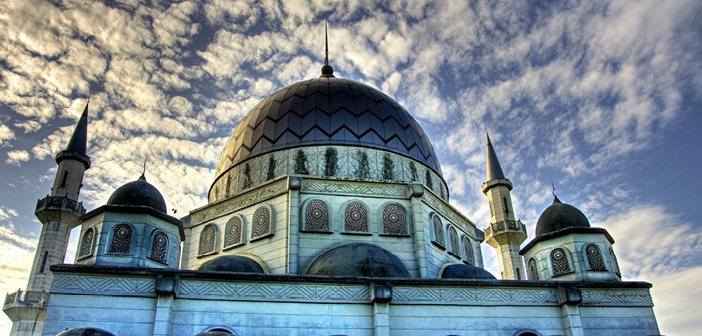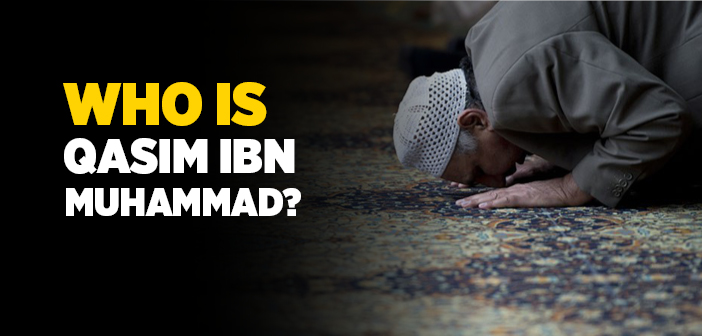Who is Muhammed Baba Samasi? What kind of person Muhammed Baba Samasi? When did Muhammed Baba Samasi live?
Muhammed Baba Samasi [d. 1335]
Muhammed Baba Samasi (may Allah have mercy on him) was born in the village of Sammas in the town of Ramitan in Bukhara. He passed his youth in study and under the advice of his father Sayyid Abdullah Efendi, he aligned himself with Mahmud Anjir Faghnawi. Faghnawi then referred him to his successor Ali Ramitani (may Allah have mercy on them)[1].
Samasi went with his teacher to Khwarezm and completed his sayr-u suluq there, becoming one of his successors. He then returned to his village of Sammas and began to guide the people there[2]. In stating the first condition of benefitting from his suhbah he said:
“The person of modesty, a person of struggle will see every word (from the subhah) as applying to him and take a lesson from it”[3].
Muhammad Baba Samasi (may Allah have mercy on him) was a Friend of Allah who had powers in being elsewhere (gaybet) and in rapture (istigrak). His face was forever filled with light. He had an effective glance, a sharp opinion, and had a great depth of feeling.
While walking with his disciples in Sammas at the time when the birth of Bahauddin Naqshiband (may Allah have mercy on him) was near, he passed on by the village of Qasr al Hinduvan and said to those with him:
“I can smell the name of a brave man coming from this land. Soon this place will come to be known as Qasr-i Arifan”[4].
A short time later, when Baba Samasi again stopped by the Qasr al Hinduvan with his friends he said:
“The scent has become stronger. I have no doubt that that brave young man has come to this world and honoured this land of deprivation”.
Three days had not passed when the grandfather of Bahauddin took him to Muhammad Baba Samasi to receive some blessings from his blessed glance. Samasi said to him:
“This is my son. We have accepted him” He then turned to the Sufi’s around him and said:
“This brave young man, whose scent we had received for a time, will soon be the qutb of this time and a leader of a tariqah”
Having received such an indication, he turned to his successor Sayyid Amir Kulal.
“My son, have compassion on my son, Baha–ud-Din and do not neglect his education and training. If you are lax in this matter I will not forgive you.
Amir Kulal immediately rose and placing his hands on his heart he said with great respect:
“If I am lax in carrying out the will of my teacher, then may I be despicable and base”[5].
When Bahauddin Naqshiband (may Allah have mercy on him) was approximately eighteen years old, his grandfather wished for him to marry and he sent him to the village of Sammas to invite Baba Samasi (may Allah have mercy on him) to Qasr al-Arifan. Khaja Bahauddin narrates this event as follows:
“When I was about to marry, my grandfather sent me to invite Baba Samasi to my engagement ceremony. His desire was for him to bless our house with his presence. The first karamah I witnessed when I was honoured with meeting Samasi was this:
That night a very prosperous state overcame me after listening to the talk he gave. I rose and went to the masjid where I prayed two rakats of prayer and then laid my head down in prostration. I was pleading with Allah in a state of reverence. At that point the following supplication came out of my mouth: “O my Lord! Give me the strength and power to bear the weight of tribulation, to endure troubles and hardship and withstand the suffering that comes from love”.
When it was morning I went to serve Khwaja Baba Samasi and he said:
“My son, your prayer should be as follows: “My Lord! Make me this weak servant of Yours successful in matters pleasing to You through Your grace and favour.
“If Allah, Most High, sends a tribulation to one of His servants then, through His grace and mercy, He will bestow upon him the required strength. He will explain to him the wisdom behind it. It is not right for a person to ask for tribulation. One should not err in one’s adab and respect”.
Later our meal was prepared. After eating they gave me some more bread. I said to myself: “We have eaten here to our fill and soon we will arrive back home, what need is there for this bread?”
We set out and I walked behind them in complete respect. Whenever something contrary appeared to my mind he would say: “My son! We must protect our heart from negative and vain thoughts”.
On the journey we stopped over at the house of a person who knew and loved him. The host greeted him smiling and respectfully. When we entered we saw that the host was troubled.
When he asked him:
“Tell me honestly, what is the matter?” The host replied:
“We have some cream but we have no bread to go with it”.
Samasi turned to me:
“Bring that bread that they gave you. See how we needed it”.
After witnessing this state my belief in that honourable man increased even more”[6].
A little while after Muhammad Baba Samasi (may Allah have mercy on him) visited Qasr al-Arifan, he passed away. It was approximately the hijri year of 736 (1335AD). His blessed tomb is in the village of Sammas, in Ramitan in the surrounds of Bukhara.
[1]. Muhammad Talib, Matlabu al Talibin, vr. 20b.[2]. Lahuri, Hazinat al Asfiya, I, 545.[3]. Salahaddin ibn Mubaraq al Bukhari, Anisu al Talibin, p. 186.[4]. Qasr al Hinduwan means the palace of the Indians or Guards; while Qasr-i Arifan means the palace of the Arifs (gnostics).[5]. Salahaddin ibn Mubaraq al Bukhari, ibid, p. 38; Jami, Nafahat, p. 526; Rashahat, p. 102; Muinaddin Naqshiband, Kanzu as Saada, p. 698; Majduddin Badahshani, Jamiu al Salasil, p. 708.[6]. Jami, Nafahat, p. 526-527; Salahaddin ibn Mubaraq al Bukhari, ibid, p. 36-37.
Source: Osman Nuri Topbaş,The Golden Chain of Transmission Masters of the Naqshinandi Way, Erkam Publications





